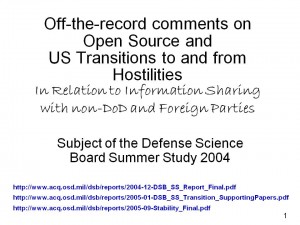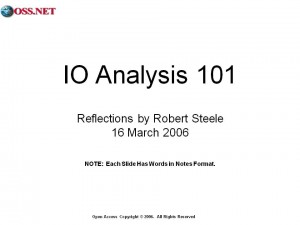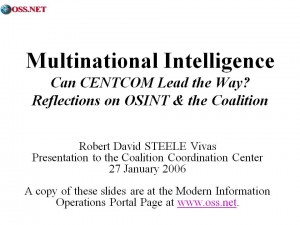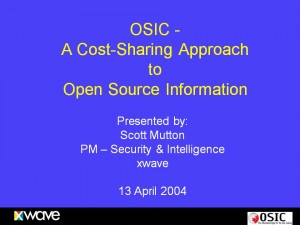
NOTE: By “off the record” Dr. Markowitz has clarified that this information may be shared as we are sharing it, but those benefiting from our sharing should treat the knowledge as if they had acquired it “off the record,” as personal views that should not be attributed nor accepted as anything other than background perceptions.

PLATINUM LIFETIME AWARD, Dr. Joseph Markowitz
Dr. Joseph Markowitz is without question the most qualified Open Source Intelligence (OSINT) pioneer in the ranks of those presently in or retired from U.S. government service. As the only real chief of the Community Open Source Program Office (COSPO) he tried valiently to nurture a program being systematically undermined by both the leadership and the traditional broadcast monitoring service. When he moved on to advise the Defense Science Board, he served America well by helping them fully integrate the need for both defense open source information collection and exploitation, and defense information sharing with non-governmental organizations. His persistent but diplomatic efforts merit our greatest regard.








